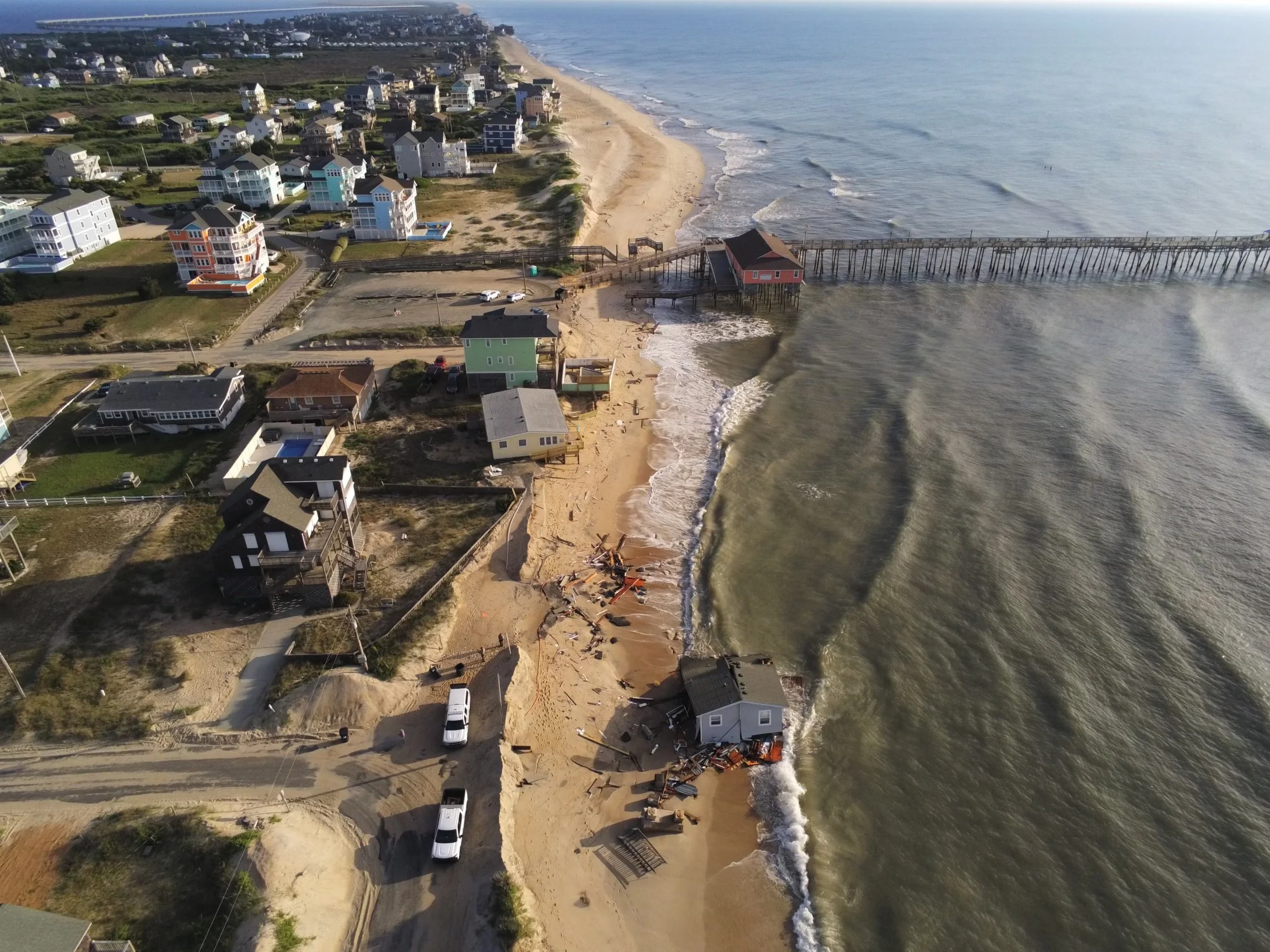Researchers and practitioners strengthening the region’s coastal protected areas
The Park Institute of America hosted National Park Service Superintendents, regional conservation leaders, and students, research staff, and faculty from North Carolina’s top universities to explore two questions:
How can we make coastal protected areas more resilient?
How can we do better research in these same coastal parks?
Participants highlighted new research, policy, and outreach approaches to coastal resiliency being implemented locally that protected area managers in NC should know more about, as well as those approaches already working for the state’s National Seashores that could transfer to other coastal parks.
POLICY
How can we develop forward-looking legislation and regulatory frameworks that anticipate coastal protected area management challenges of 2030 and beyond?
SCIENCE
How can we use emerging technologies to capture and communicate knowledge that supports communities, institutions, and coastal resiliency frameworks?
OUTREACH
How can we increase both stakeholder engagement and community buy-in to build lasting support for coastal stewardship strategies?
The symposium caught the attention of Public Radio for Eastern North Carolina, with Annette Weston interviewing Congressman Greg Murphy, M.D. and the Park Institute’s own Tyler Sammis on policy options reviewed during the event.
Participating Organizations
Government agencies
National Park Service
Cape Hatteras National Seashore
Cape Lookout National Seashore
Glacier Bay National Park & Preserve
Inventory and Monitoring Division
North Carolina Division of Coastal Management
North Carolina Coastal Reserve
Rachel Carson Reserve
US Geological Survey
Wetland & Aquatic Research Center
National Oceanic and Atmospheric Administration
University Faculty and Research Teams
Duke University
Marine Robotics & Remote Sensing Lab (MaRRS)
Duke Environmental Law & Policy Clinic
Duke University Marine Lab Community Science Initiative
North Carolina State University
North Carolina Sea Grant
Center for Marine Sciences and Technology
Coastal Resilience and Sustainability Initiative
East Carolina University
Center for Geographic Information Science
University of North Carolina Chapel Hill
Coastal Environmental Change Lab
Center for Natural Hazards Resilience
Socio-Ecological Change Research Lab (SECR)
Western Carolina University
Program for the Study of Developed Shorelines
Arizona State University
Regional Stakeholders
North Carolina 3rd US Congressional District
Town of Beaufort
Eastern North Carolina Sentinel Landscape
North Carolina Coastal Federation
Southern Environmental Law Center
National Parks Conservation Association
Southeast Regional Team
Sun Coast Regional Team
Water Team
Core Sound Museum
Event Sponsors
Panel Discussions
Threatened Oceanfront Structures
Duke Environmental Law & Policy Clinic Co-Director Michelle Nowlin led a coastal resiliency policy panel that examined policy options for mitigating the impact of threatened oceanfront structures, including those proposed by the Interagency Work Group on Threatened Oceanfront Structures. District Director Lindy Robinson of US Representative Dr. Gregory Murphy’s office joined NC Division of Coastal Management Director Tancred Miller and NC Coastal Federation Executive Director Braxton Davis to discuss the Representative’s recently introduced legislation on the treatment of at-risk coastal structures, including the events that catalyzed the bill’s broad support and the bill’s impact on coastal protected area managers if enacted.
“To [protect] against damage and loss resulting from the erosion of and undermining of shorelines available under the National Flood Insurance Program”
UAV Research in Coastal Protected Areas
The Director of Duke's Marine Robotics & Remote Sensing (MaRRS) Lab, Dr. David Johnston, led a discussion on unmanned aerial vehicle (UAV) use within coastal National Park Service units. Glacier Bay National Park & Preserve Supervisory Biologist Dr. Jamie Womble, USGS Research Ecologist Dr. Kristen Hart, and East Carolina University Assistant Professor Dr. Hannah Sirianni discussed the benefits of drone employment in coastal settings and the tradeoffs between manned and unmanned aircraft in coastal wildlife monitoring programs. The group explored the research limitations of blue drones as well as the impacts that recently proposed legislation prohibiting the use of DJI drones would have on their conservation research efforts.
“to provide for the addition of [DJI Technologies] to the list of covered communications equipment or services”
Coastal Cultural Resource Preservation
The Associate Director of Western Carolina University's Program for the Study of Developed Shorelines, Andy Coburn, guided discussion on the challenges that rising seas and eroding shorelines pose for protected area managers charged with the competing tasks of preserving cultural resources while also stewarding natural habitat and ecosystem processes. Using Cape Lookout National Seashore as a case study, Superintendent Jeff West, Arizona State University Associate Professor Dr. Xiao Xiao, and Duke University Marine Lab Community Science Initiative lead Research Scientist Dr. Liz DeMattia explored the roles of storytelling, outreach, education, and children in documenting and preserving the cultural heritage of revered spaces that will likely be lost to the ocean in a single generation.
“While the shoreline moves and changes, it is more difficult for people and the structures we build to do the same.”
Event Report (pending)
Local Partnerships
1. Identify and disseminate best practices for increasing stakeholder engagement while encouraging the furtherance of community-based science initiatives.
2. Assist our partners in developing locally sustainable practices for conservation efforts of their unique ecosystems.
NC Coastal Protected Areas
3. Identify the unique challenges of the Outer Banks and “Down East” North Carolina and leverage the confluence of local and national resources to maximize state-level initiatives to protect this vulnerable ecosystem and the communities that live in it.
4. Provide vignettes of lessons learned, best practices, and coverage gaps in protecting this vibrant and ever-changing landscape.
Coastal Parks Nationally
5. Amplify others’ work proven effective in their localities or regions and promote the most widely applicable techniques or trends to all our protected and conserved areas.
6. Expand the body of knowledge to reduce the challenges, both unique and universal, facing all coastal ecosystems.

























































